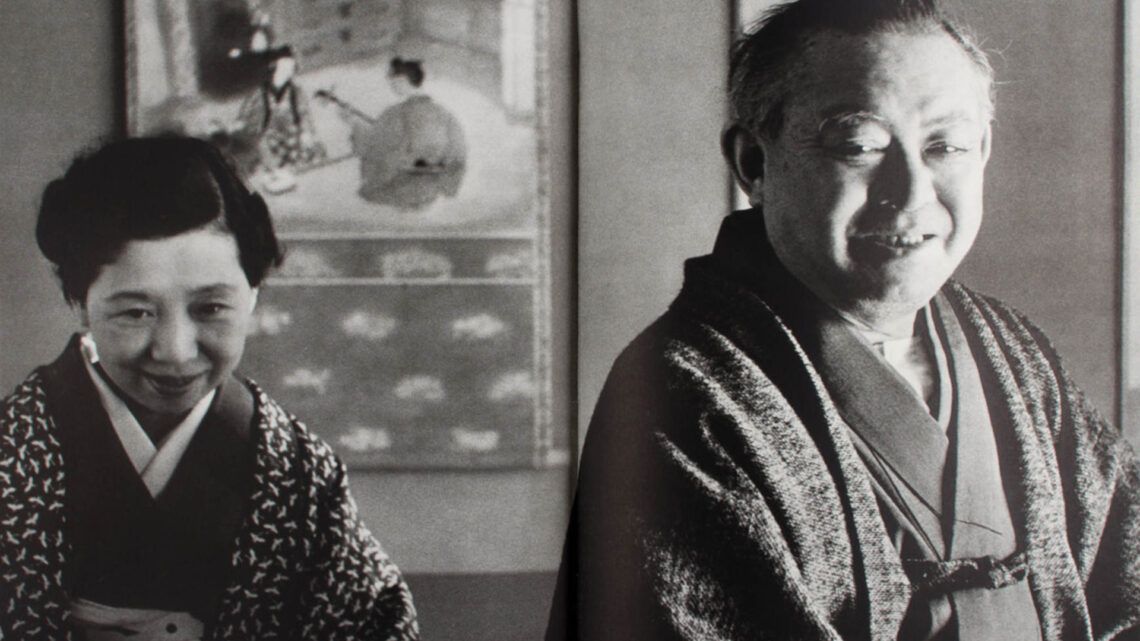
Japan, a country with a rich history and a fascinating present. The diversity of Japanese literature, from ancient traditions to modern mangas, makes it an exciting topic for both writers and readers. In this blog article, we delve into the world of Japanese literature and explore how writers describe and capture contemporary Japan.
The Significance of Japanese Literature
Japanese literature has a long tradition that dates back to ancient Japan. From classic works like “The Tale of Genji” by Murasaki Shikibu to contemporary novels and poetry, Japan’s literature reflects the development of society and the changes over time. It is not only a reflection of Japanese culture but also a means to understand contemporary Japan.
Describing Japanese Society
Some writers focus on describing Japanese society and its peculiarities. They take the reader on a journey through modern Japan, addressing various aspects such as the working world, interpersonal relationships, and the social challenges faced by the Japanese. Through vivid characters and detailed descriptions, these writers provide insights into daily life in Japan.
Emphasizing Nature and Seasons
Nature plays a prominent role in Japanese culture and, therefore, in literature as well. Many writers describe the beauty of nature and emphasize the importance of seasons. From the blooming cherry blossoms in spring to the lush greenery in summer, and from autumn foliage to the tranquility of winter, seasons are present in the works of many writers. By using nature descriptions, they capture the atmosphere and mood of each moment.
Depicting Japanese History and Traditions
Japan has a rich history often portrayed by writers. They describe past eras such as the time of the samurai or the Meiji Restoration, bringing the past to life. They not only depict historical events but also the traditional customs and practices that still exist in Japan today. Writers take the reader on a journey through time, allowing them to explore Japan’s cultural roots.
Engaging with Societal Issues
Some writers use their works to address and critically question societal issues. They tackle topics like equality, social inequalities, environmental problems, and the changing traditional values. Through their literary portrayals, they prompt reflection and contribute to public discussion.
Capturing Japanese Aesthetics
Japan is known for its aesthetics, reflected in various areas such as architecture, art, and everyday culture. Some writers focus on capturing this aesthetic in their works. They describe the beauty of Japanese gardens, the simplicity of Zen Buddhism, or the aesthetics of traditional tea ceremonies. Through their language, they convey a sense of the unique beauty and harmony found in Japanese culture.
Exploring Individual Experiences and Emotions
In addition to societal and cultural aspects, many writers place focus on the individual experiences and emotions of their characters. They describe personal stories of love, loss, hope, and sadness. By allowing readers to share in the thoughts and feelings of their protagonists, they create an emotional connection and enable readers to empathize with the characters.
The Influence of Japanese Literature on Society
Japanese literature has a lasting impact on society both in Japan and internationally. It contributes to expanding the understanding of Japanese culture and contemporary life, stimulating reflection. Numerous works have been successfully adapted into films or other mediums, reaching a wide audience. Literature builds a bridge between cultures, allowing us to grasp the Japanese present at a deeper level.
By describing and capturing contemporary Japan, writers open the doors to a fascinating world. They take us on a literary journey through the diverse aspects of Japan, from nature to history and societal challenges. Japanese literature brings the present to life, allowing us to experience the beauty and complexity of Japan in a truly special way.
Japanese literature is rich in diversity and facets when it comes to describing and capturing contemporary Japan. From traditional narrative forms to modern approaches, Japanese writers offer a broad spectrum of works that delve into various aspects of present-day Japan. In this article, we take a look at some interesting approaches and themes found in Japanese literature.
Searching for Identity in a Globalized World
In an era of globalization and cultural exchange, many writers explore the question of Japanese identity. They delve into the impact of Western culture and technology on Japanese society, attempting to strike a balance between preserving their own traditions and embracing the new. These works reflect the search for an authentic Japanese identity in a rapidly changing world.
Challenges of the Modern Work Environment
The modern work environment is a central experience in contemporary Japan. Writers often focus on themes of overwork, stress, and the precarization of employment. They describe the high pressures faced by Japanese workers and shed light on the effects on their physical and emotional well-being. Through their works, they express the societal challenges and injustices associated with the modern work environment.
The Role of Family and Interpersonal Relationships
The family plays a central role in Japanese society and is frequently explored in literature. Writers delve into the complex relationships within families and the expectations and conflicts associated with them. They take the reader on a journey into the intimate world of interpersonal relationships, shedding light on love, conflict, and the bonds that form within families.
The Social Status of Women
The position of women in Japanese society is another central theme in literature. Female writers confront the challenges faced by women in Japan and address topics such as gender roles, feminism, and social expectations. Through their works, they contribute to the discussion and reflection on gender equality and the role of women in society.
Engaging with History and Collective Memory
Japanese literature also plays a significant role in coming to terms with Japan’s history and collective memory. Writers explore events such as World War II, the atomic bombings, or the occupation period and reflect on the consequences of these historical events on Japanese society. Through their works, they enable a critical examination of the past and promote understanding of present societal and political dynamics.
Connection to Nature and Spirituality
The connection to nature and spirituality holds great importance in Japanese culture and finds expression in literature as well. Writers depict the beauty of nature and the significance of traditional rituals and customs associated with it. They create an atmosphere of tranquility and contemplation, allowing readers to establish a connection with nature and their own spirituality.
Confronting Urban Reality
Japanese literature also reflects the urban realities of Japan. Writers transport the reader into vibrant cities like Tokyo or Osaka and depict the hectic life in these metropolises. They address the anonymity, loneliness, and hustle and bustle of urban life while reflecting on the impact of urban reality on individual well-being and interpersonal relationships.
The Power of Imagination and Fantasy
In addition to realistic portrayals of contemporary Japan, there is also an abundance of literary works that employ imagination and fantasy. Writers create fantastical worlds, transcending the boundaries of reality and taking the reader on magical adventures. These stories allow readers to escape from everyday life and immerse themselves in a world of dreams and imagination.
The literature in Japan offers a fascinating variety of perspectives and themes that enable a comprehensive understanding of contemporary Japan in all its facets. Writers express the social, cultural, and individual experiences of people, prompting reflection on the challenges and opportunities of present-day Japanese society. Through their works, they provide us with new insights and allow us to establish a connection to Japanese culture and the present.
Some representatives of Japanese literature and their significant works:
Haruki Murakami – “Kafka on the Shore,” “Colorless Tsukuru Tazaki and His Years of Pilgrimage,” “Norwegian Wood” – Murakami is one of Japan’s most renowned contemporary writers. His works are characterized by surreal elements, melancholy, and a blend of Western and Japanese culture.
Yukio Mishima – “The Sea of Fertility,” “Snow Country” – Mishima was a prominent author of the 20th century. His works often illuminate themes such as death, beauty, and the conflict between traditional and modern values in Japan.
Banana Yoshimoto – “Kitchen,” “Goodbye Tsugumi” – Yoshimoto is a prominent female writer whose works revolve around personal relationships, loss, and the everyday lives of young people in Japan. Her narratives are often subtle, poetic, and melancholic.
Natsume Soseki – “I Am a Cat,” “Kokoro” – Soseki is one of Japan’s most influential writers. His works explore the psychological and emotional aspects of human existence and reflect on the challenges of modern society.
Yasunari Kawabata – “Snow Country,” “Thousand Cranes” – Kawabata was awarded the Nobel Prize in Literature in 1968. His works are characterized by subtle poetry and sensitivity, illuminating themes such as love, loss, and the connection to nature.
Kobo Abe – “The Woman in the Dunes,” “The Box Man” – Abe was a well-known writer and playwright. His works are marked by surrealistic elements, philosophical inquiries, and a dark atmosphere.
Fumiko Enchi – “The Waiting Years,” “The Makioka Sisters” – Enchi was an outstanding writer of the 20th century. Her works delve into topics such as female identity, family relationships, and societal expectations placed on women.
These authors and their works provide only a glimpse into the fascinating world of Japanese literature. Their works offer readers the opportunity to immerse themselves in Japanese culture and explore various aspects of contemporary Japan. From contemporary novels to classics, there is a plethora of works worth discovering.



